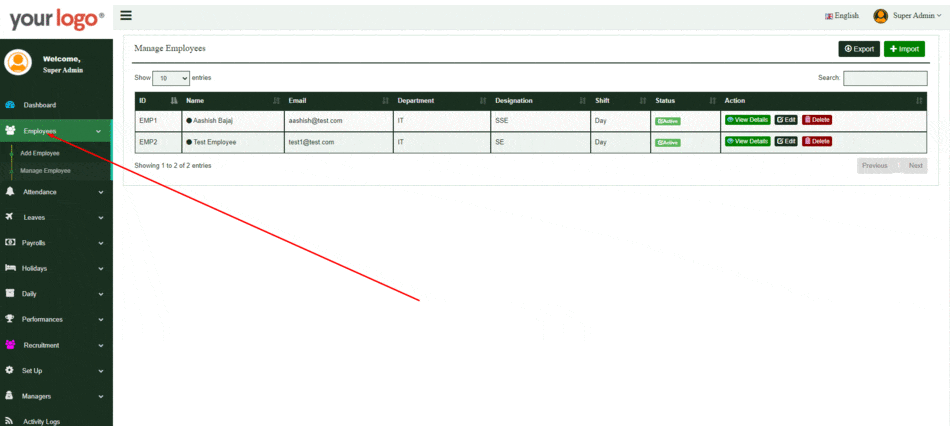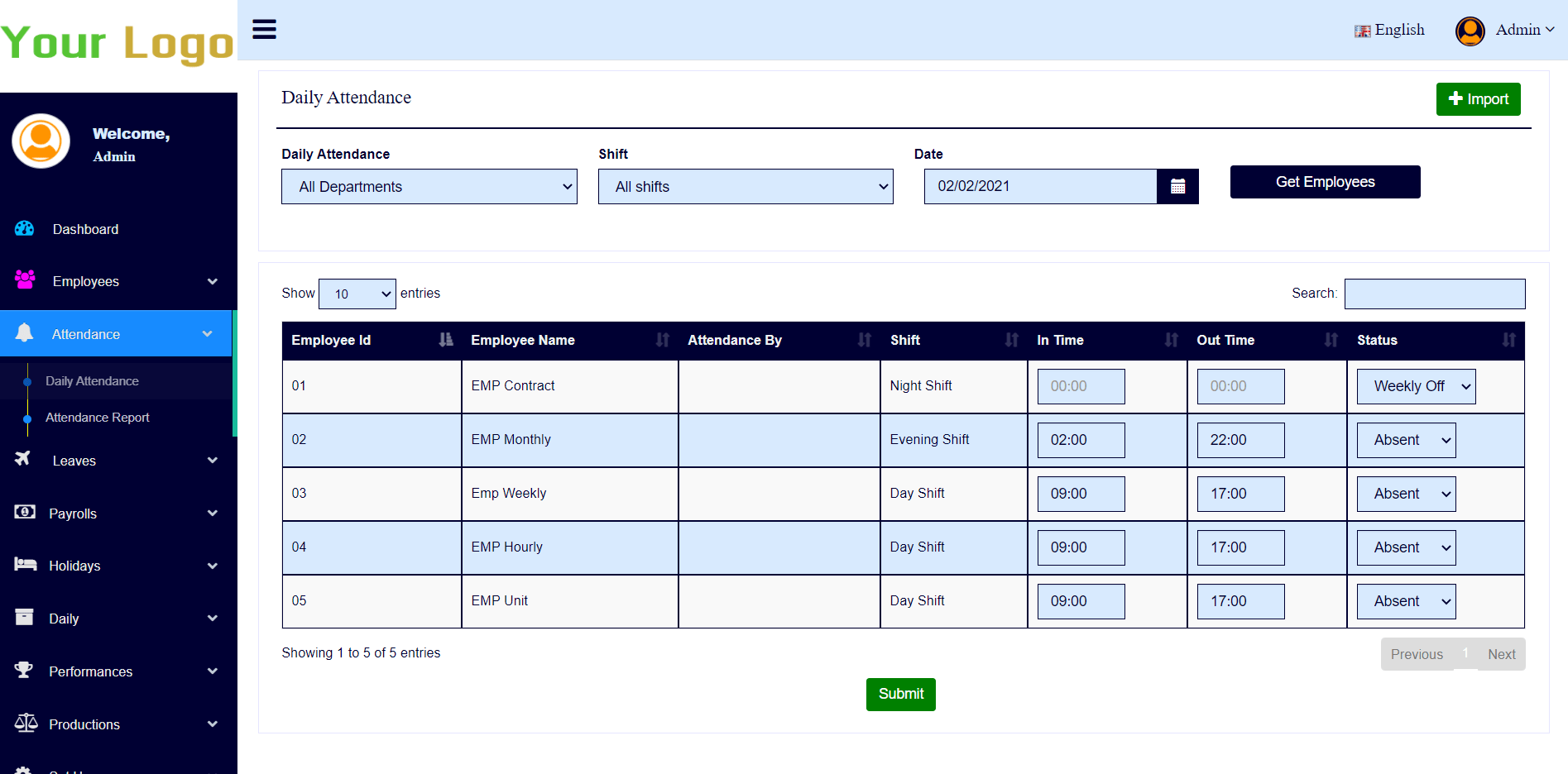Compensation Management System

Compensation management deals with managing the employee’s wages, salaries, benefits, and bonuses in an organization.
Compensation management is the process of guaranteeing that workers’ salaries and bonuses are kept competitive in the workplace. in addition, involves managing company profit programs to meet the wants of their workers.
Compensation management plays a huge role in human resources; as a result, it’ll impact employee retention, the hiring methodology, company performance, and team engagement. Compensation management is an important factor in the company’s success. If salary, bonuses, and guidance aren’t managed properly, workers might join elsewhere with much better packages. Compensation management tries to structure their compensation structure in such a way that it satisfies their employees needs.
A company’s compensation management structure is something most individuals look at and decide whether to keep up with the company or look for a new company.
Importance of Compensation Management
A good compensation may be an ought for every enterprise; as a result, it provides the associate employee a reason to remain in the company.
• It tries to grant a correct refund to the workers for their contributions to the organization.
• It discovers a positive management on the efficiency of workers and motivates them to perform higher.
• It creates a base for happiness and satisfaction of the force that limits labor turnover and confers a stable organization.
• It enhances the task analysis methodology, that reciprocally helps in setting up loads of realistic and achievable Standards.
• it’s designed to abide by the numerous labor acts so does not end conflicts between the employee union and additionally the management. This creates a peaceful relationship between the leader and additionally the workers.
• It excites associate employees in the setting of morale, efficiency, and cooperation among the workers and ensures satisfaction to the workers.
The Objective of Compensation Management

Motivating Personnel
Money also plays a very important role in motivating individuals. But at the same time, money compensation has its limitations in motivating people for superior performance. Besides money, people, in addition, would like praise, promotion, recognition, acceptance, status, etc., For motivation.
Optimizing The Worth of Compensation
Compensation management aims at optimizing the worth of compensation by establishing a linkage between performance and compensation. A higher level of wages and salaries doesn’t need to bring higher performance automatically, but depends on the sort of linkage that is established between performance and wages and salaries. Compensation management tries to undertake this.
Acquire Qualified Personnel
Compensation has to be high enough to draw in candidates. Pay levels should reply to the provision and demand of employees within the market. Premium wages are generally required to draw in candidates operating for others.
Consistency in Compensation
Compensation management tries to understand consistency-both internal and external-in compensating workers. Thus, higher compensation is connected to higher-level jobs. Similarly, higher compensation is connected to higher performers in an equivalent job. The level of jobs at intervals of incorporation is made ready by the job analysis. External consistency involves similar compensation for similar employment in all organizations. Although there are many factors involved in the determination of wage and remuneration structure for employment in a company which might result in some moderate difference in the compensation of a particular job as compared to different organizations, compensation Management tries to cut back this difference.
Retain Current Staff
Employees might quit once compensation levels aren’t competitive, leading to higher turnover in the organization. The staff operates in the organization in exchange for awards. If pay levels aren’t competitive, some staff will quit the firm. To retain These staff, pay levels should be competitive.
Assurance of Equity
To retain and encourage staff, worker compensation should be honest. Fairness in wage and pay Administration needs to be directed towards achieving equity. Compensation management seeks internal and external Equity. Internal equity needs may be associated with the relative price of employment, so similar jobs get similar pay. External equity suggests paying employees what different enterprises within the market pay comparable workers.


Reward Desired Behavior
Pay ought to reinforce desired behaviors and act as an incentive for those behaviors to occur in advancement. Effective compensation plans reward performance, loyalty, experience, new responsibilities, and managing different behaviors that are often rewarded through good compensation.
In Managing Costs
A rational compensation system structure helps the firm acquire and retain employees at a reasonable price. Without effective compensation management, staffs might be overpaid or unpaid.
Benefits Legal Rules
A sound wage and pay system considers the legal challenges obligatory by the govt and ensures that employers comply.
Facilitate Understanding
The compensation management system ought to be simply understood by human resource specialists, operating managers and workers.
Different Types of Compensation
There are different types of compensation management. Three major forms of compensation are –
Non-monetary Compensation
Non-monetary compensation includes any profit that a worker receives from an administrator or employer that doesn’t involve tangible worth. These include career development and advancement opportunities, opportunities for recognition, and workplace conditions.
Direct Compensation
Direct compensation includes the pay that’s paid to the staff besides the health advantages. Cash is enclosed underneath direct compensation. A worker’s base wage is often an annual wage or hourly wage and any performance-based pay that an employee receives. These embody the fundamental pay, house rent allowances, medical advantages, town allowances, conveyance, provident funds, etc. It conjointly includes bonuses. payments for holidays, etc.
Indirect Compensation
Indirect compensation can be guessed as the non-monetary advantages a worker gets from the organization. It includes everything from public protection programs like Social Security to insurance. Retirement programs, paid leave, childcare, or moving expenses. Whereas advantages return underneath indirect compensation and contain life, accident, insurance, the employer’s contribution to retirement, vacation packages, etc. Rewards and recognitions, promotions, responsibility, etc., are the factors that induce confidence within the staff and encourage them to perform higher. It conjointly ingrains the belief in them that their smart work is being recognized, and that they will boost their career opportunities if they still work tougher.







